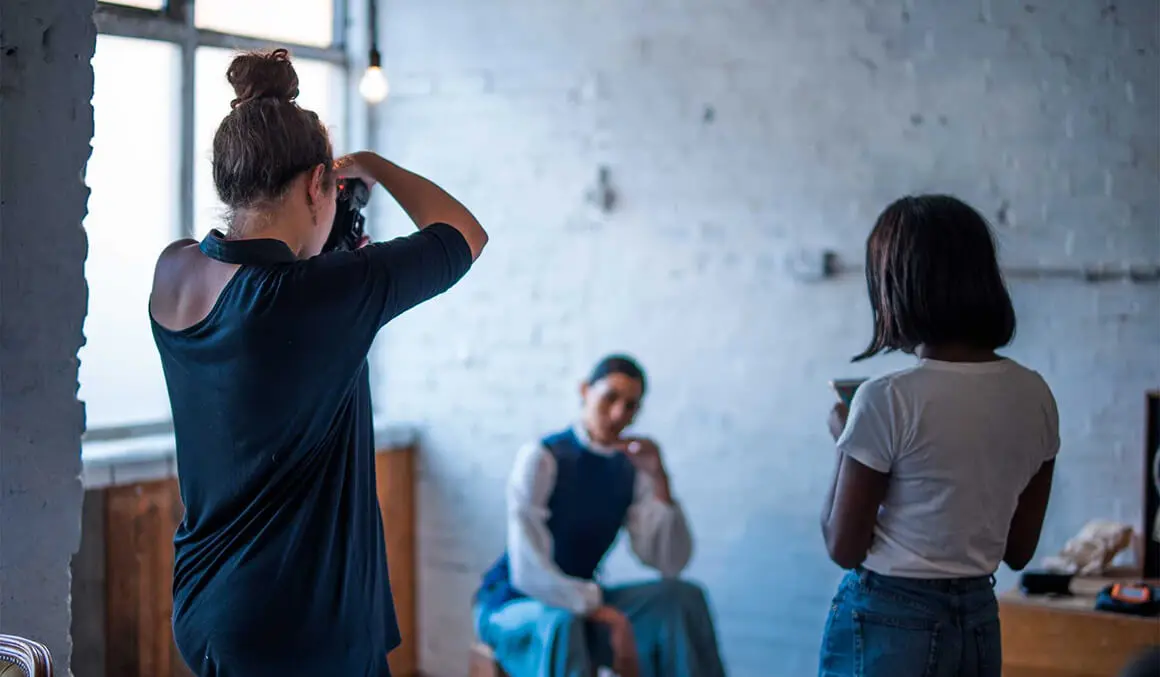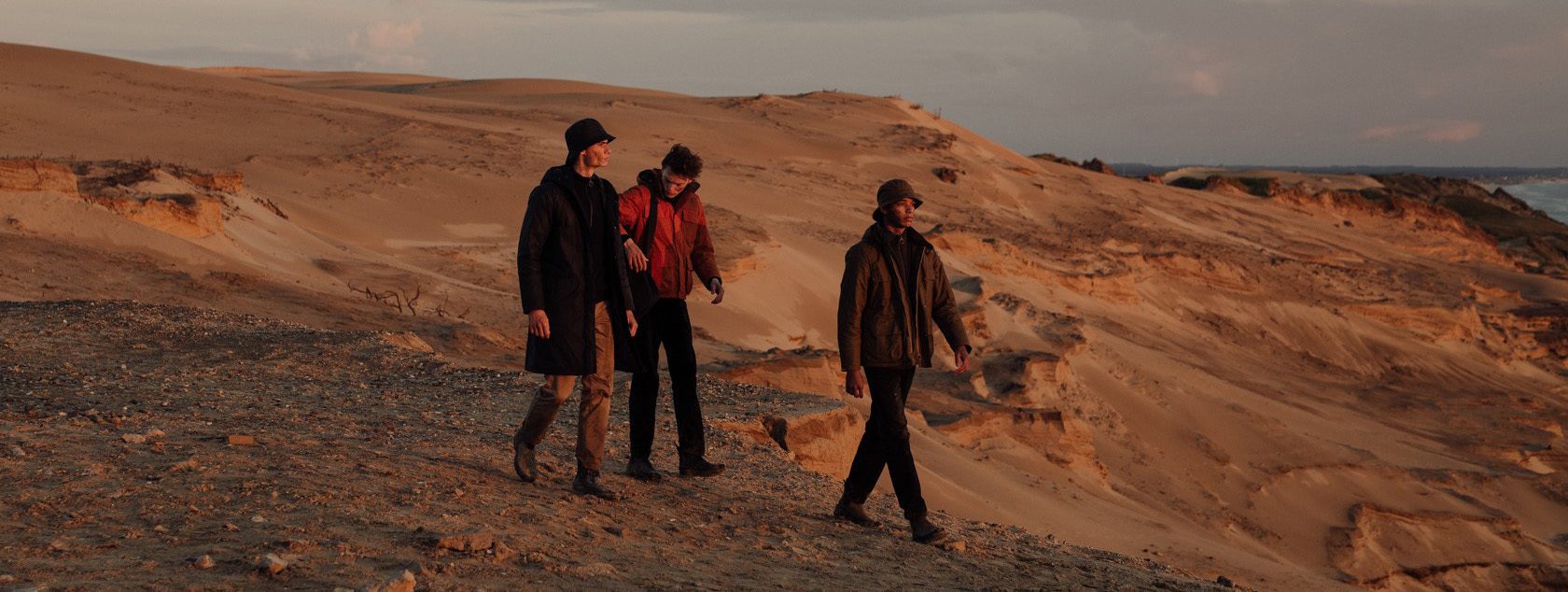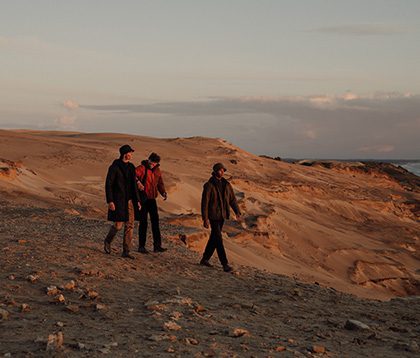How to become a fashion photographer: what you need to know
The professional life of a fashion photographer is an exhilarating one; immersed in the glamorous world of fashion with the chance to travel the world; working with global brands, A-list celebrities, and attending high-profile events. But breaking into this competitive field isn’t easy. Dan Blake, director of education at London College of Style – which teaches fashion photography, photojournalism and portraiture – explains what it takes to get a successful career off the ground.
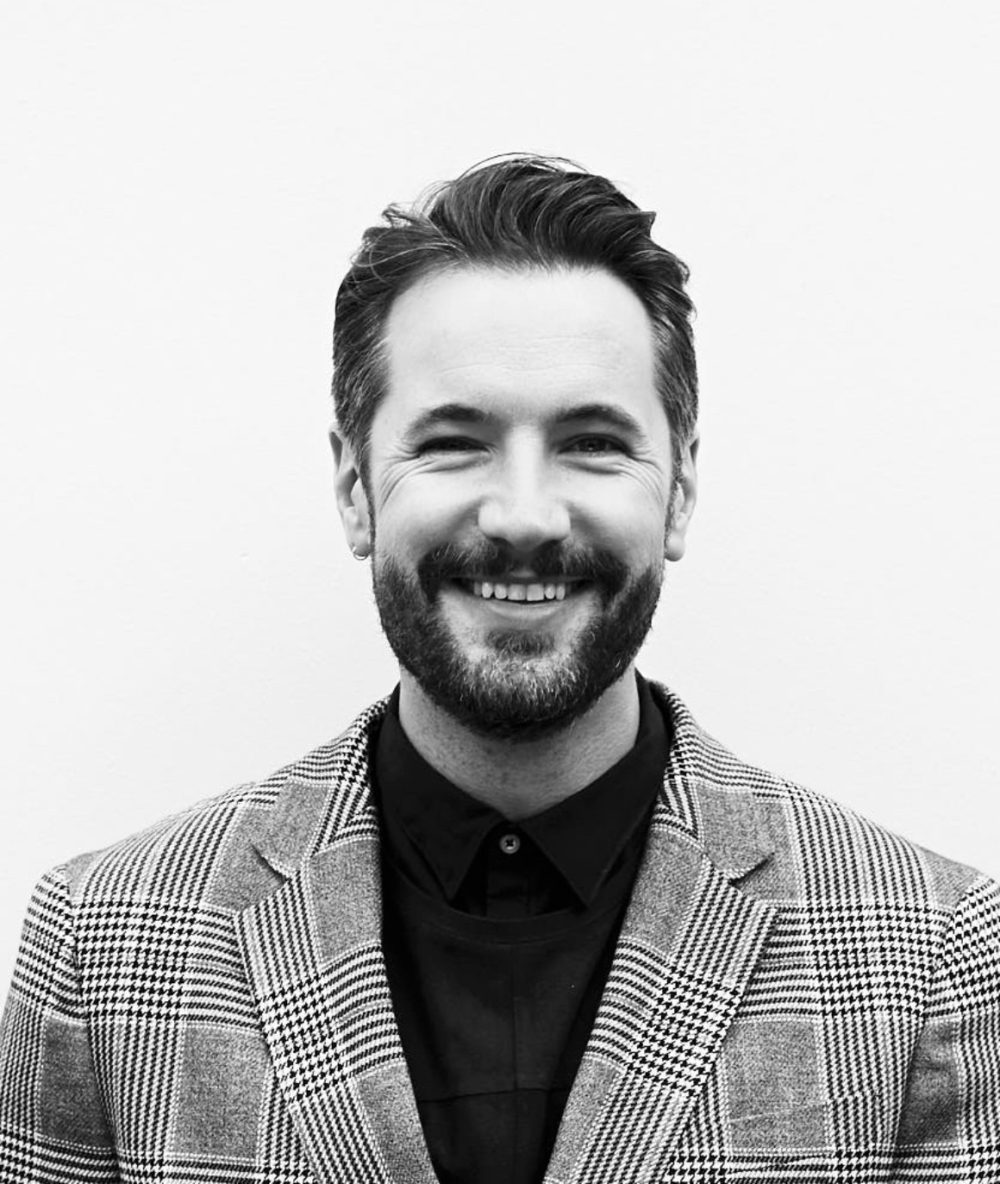
Dan Blake, director of education at London College of Style
The popularity of fashion photography is increasing and these days many people consider themselves as budding photographers. Explosive growth in social media, online fashion retail and the smartphone revolution are all contributing factors.
But most people don’t realise the range of skills you need to forge a successful career – it’s not simply about being able to use a camera with creative flair. Even those already in the industry find it hard. Our research with emerging fashion photographers, ahead of launching our new fashion photography course, revealed that understanding how to connect with industry, network effectively and monetise aspirations into a career were all areas they wished they had received more training on.
Starting out
Before you embark on your quest, know your niche. Understanding where you’d like to work in a diverse industry can be quite tricky. Students come to us often not knowing where their skill set lies, and this is something that they discover in training. Are you the type of photographer that would like to work one-on-one with a subject, creatively producing a portrait that reflects their personality with your creativity? Or would you be suited to the fast-paced world of fashion? There’s a wide variety of roles out there so explore all avenues and career options.
Darren Black, a professional photographer and one of the tutors at LCS on our fashion photography course, offers three essential tips when starting out: “First things first: obviously you’ll have a passion for photography and manage to master commercial and creative techniques to a professional level. You’ll also need a decent knowledge of fashion in general and know how to pronounce some of the weird and wonderful names you’ll come across. But you also need a strong point of view – you won’t survive very long if you’re too shy or backward in coming forward.”
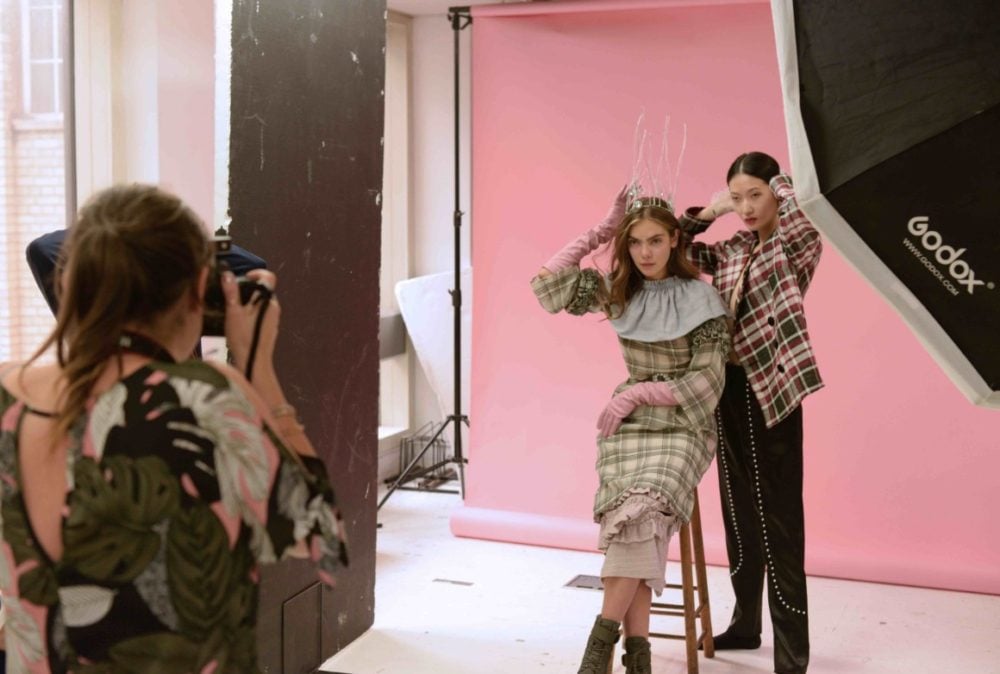
Next you need experience to help build your portfolio, no matter what field of photography you’d like to specialise in. Some solid determination and the right attitude will help you achieve this. Start applying for work experience and assisting the types of photographer whose work you truly admire. Soak up as much experience as you can, assisting on creative and commercial roles. If you make yourself indispensable, this might lead to paid assisting roles, which in the early days will help develop your skill set and give you an understanding of the industry at large.
Networking is vital so you need to start making new contacts as soon as possible. For fashion photographers, one of the best ways to do this is to make an experienced stylist your best friend. Your work will only be as strong as the looks and concepts, in addition to stand-out hair and make-up artistry.
Once you begin to become established you can attend industry events and fashion weeks but this can be hard initially, as it requires industry profile or published work. In the early days, use social media or blogging to showcase your work and connect this to an online portfolio or website. Follow hashtags that relate to parts of the photography industry you’d like to pursue and engage with other creatives where you can.
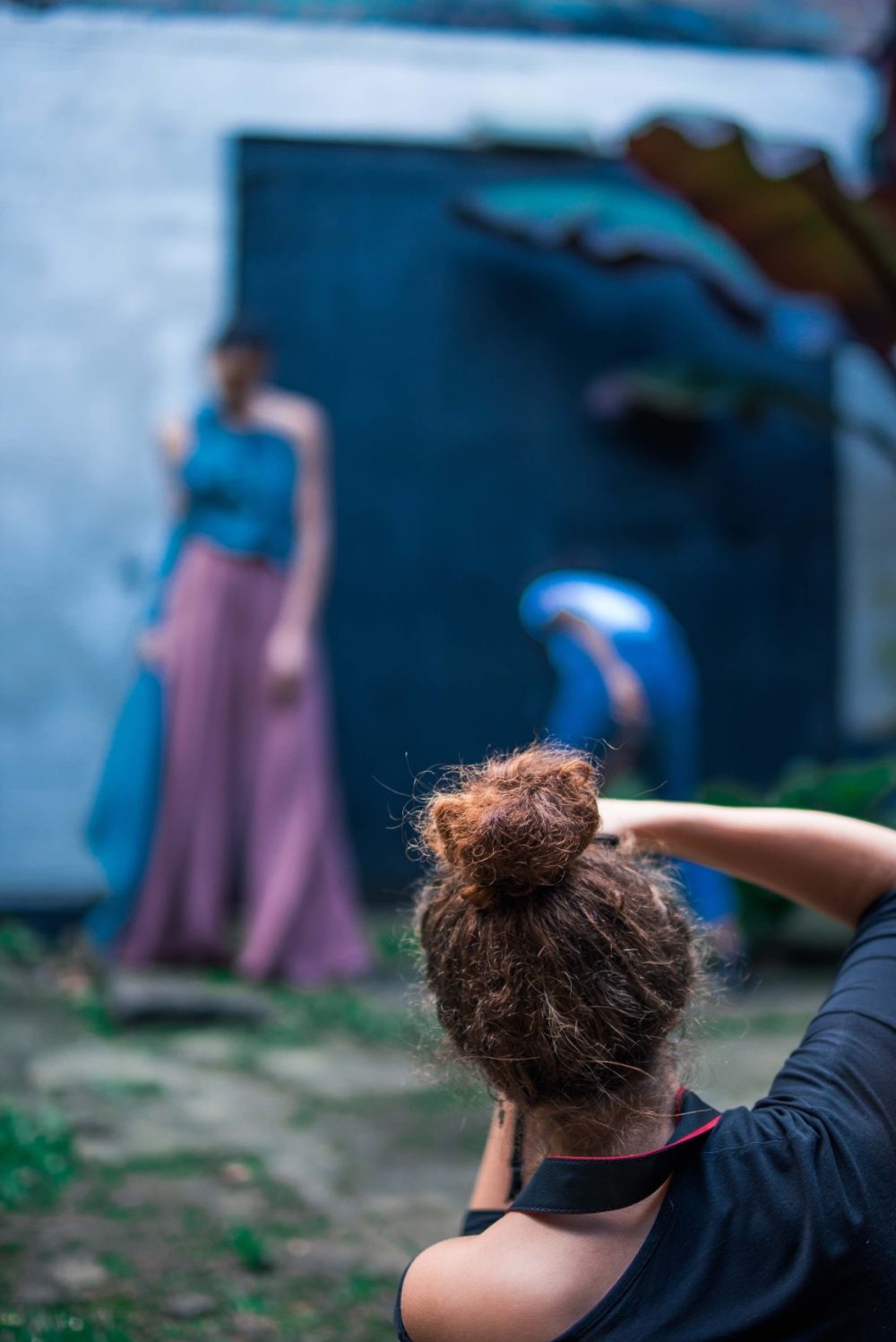
Developing a strong team, even for other photographic careers such as Photojournalism, Commercial or Portrait photography is also important. Here you’ll need to strike up a relationship with galleries, editors, journalists, modelling agencies, production companies and eventually agents, to ensure your work is appreciated by wider audiences.
As you can see, learning about these industries and how to approach them is vital. No creative career is entirely a one-person show.
Up and running
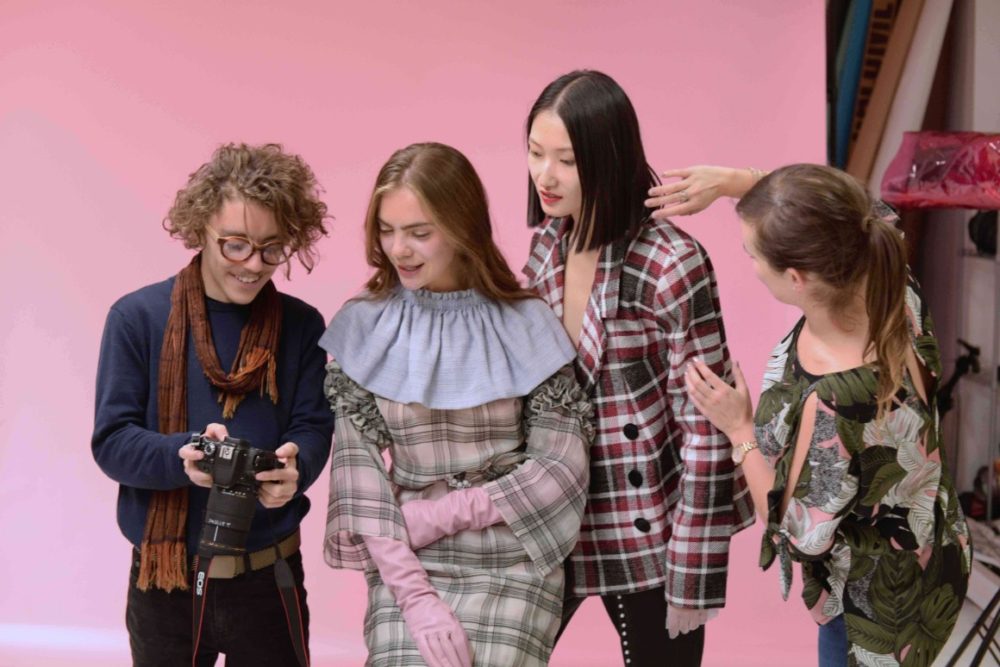
“Once you’re up and running, test models as much as possible,” advises Darren.
“It’s the model bookers who hold the cards when it comes to getting the models you’ll need for editorial shots, so testing in high numbers is crucial. Make sure you process and turn around the best photos as soon as you can to help build a good working relationship with bookers. Then you’ll start to get the access you want to the models you need.”
“Don’t be a diva – nobody needs that on set. Be friendly and kind. No fashion image is created in a vacuum so be reasonable, calm and pleasant to everyone on a shoot team: their position is just as relevant as yours. But don’t try and be a crowd-pleaser either – just because you are holding a camera, it doesn’t mean that you can shoot everything put in front of you – tell people what you like to shoot and let that define your subject matter. This will help define your signature style, which will be your calling card.”
“Don’t just go for the glamour. Keep an open mind for what type of work you want to do. Often it’s the less glamorous jobs that help pay the bills and enable you to meet great new contacts which lead to other, more exciting projects. And don’t try to be an Instagram celebrity – these days ‘everyone’s a photographer’. Just do the work to the best quality that you can and let it speak for itself.”
Pitfalls
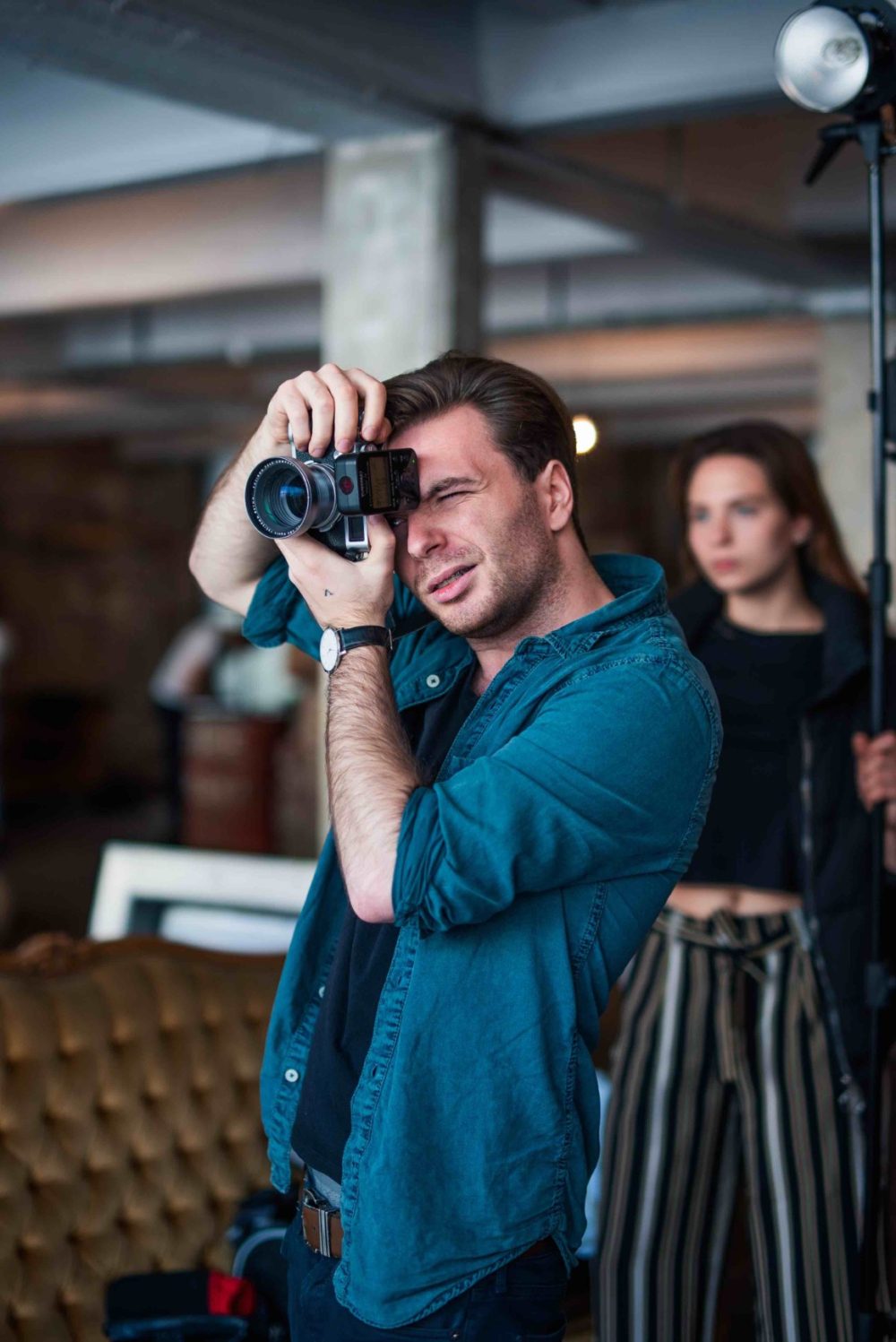
One of the downsides when just starting out is people wanting you to work for free. They will ask but it’s up to you to decide how badly you need the project – will it strengthen your portfolio? Could it lead to proper paid work?
Darren also advises: “Get used to people copying your work. They will and there’s not much you can do about it, just keep doing your best work. As they say, imitation is a form of flattery! Another downside is clients booking you and replacing you at the last minute – it happens a lot, you’ll get used to this too.”
Some students who come to us from traditional degree courses often complain of lack of ongoing career support. Once they leave the course they feel they’re left to their own devices to fend for themselves. In the creative industries this often leads to disaster as it can be daunting when starting out. Our post-study support programme is tailored to individual students and designed to guide them in the first steps of a new career. Trained professionals spend time with students defining how they best fit the industry and help to build on their strengths in a focused direction. This unique approach helps coach students into the professional workplace.
Final advice
“Make sure you have an ongoing personal project amongst all your paid jobs,” concludes Darren. “Creative collaborations and personal projects, such as magazine editorial shoots or artistic works, which can be displayed in galleries showcase your talent to wider audiences, and can get you noticed by commercial clients, increasing your profile and portfolio. You’ve never ‘made it’ entirely. All creatives evolve and develop in working towards notoriety and recognition.”
“Overall, it might sound incredibly obvious, but be an incredibly good photographer – learn how to light properly – you really can’t beat a damn good photo.”
More information
London College of Style’s Photography Foundation Diploma has been designed to help kick-start new careers and focuses on connecting students with valuable industry experience and contacts. The diploma teaches fashion photography, photojournalism and portraiture. Students have unrivalled access to the industry, taking advantage of the college’s strong partnerships with major brands, retailers, celebrities and media. The college has rapidly become a centre of excellence for personalised creative education and also offers courses in fashion styling, personal styling and make-up.
For more information on 2019 course dates please click here. Or telephone: 020 3096 9966. We’d also recommend following the college on Instagram @London_college_of_style and Twitter @LCSToday for more detail.
An Ape to Gentleman partnership with the London College of Style.
